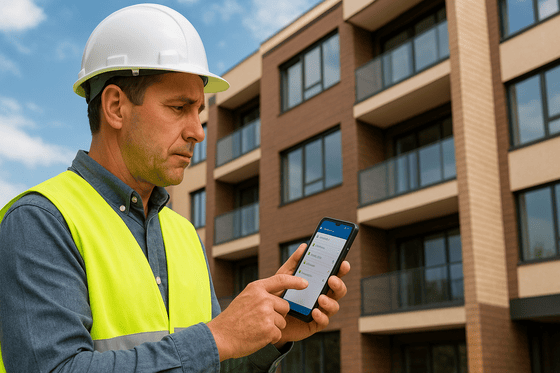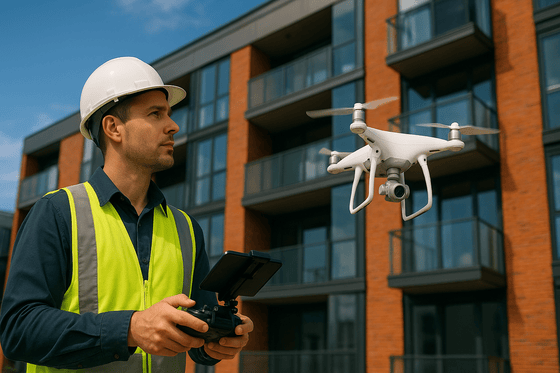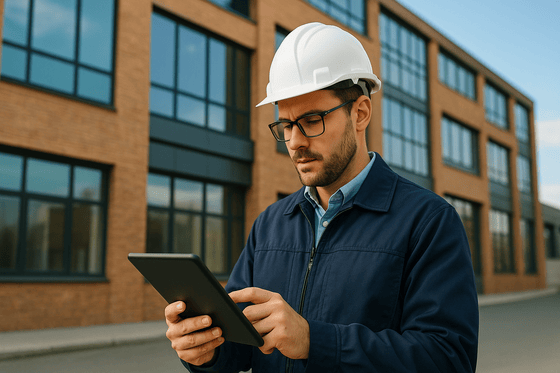Commercial Building Inspection Guide
Explore commercial building inspections, their types benefits. Ensure property safety, integrity, and value with our guide.
A Comprehensive Guide to Commercial Building Inspection
Commercial building inspections are an essential part of the real estate industry. A thorough inspection can help identify potential issues that may affect the safety, integrity, and value of the property. In this comprehensive guide, we will discuss the importance of commercial building inspections, the types of inspections, the benefits of inspections and when to get an inspection.
What is a Commercial Building Inspection?
A commercial building inspection is a comprehensive evaluation of a building's overall condition, including its structural integrity, safety, and compliance within building codes. The inspection typically includes a visual examination of the property's components, such as the roof, foundation, walls, electrical, plumbing, HVAC systems, and more.
Types of Commercial Building Inspections:
There are different types of commercial building inspections, and the type of inspection needed depends on the property's purpose, age, and location. Some of the common types of inspections include:
- Building survey: An assessment of the building's overall condition and identification of potential issues.
- Property assessment: An evaluation of the property's overall condition, including the building's exterior, interior, and site.
- Real estate inspection: A comprehensive evaluation of the building's condition, including its structure, systems, and components.
- Structural inspection: An examination of the building's foundation, walls, roof, and other structural elements.
- Building code compliance: An inspection to ensure the property complies with the local building codes.
- Fire safety inspection: An assessment of the building's fire safety systems and procedures.
- HVAC inspection: An evaluation of the heating, ventilation, and air conditioning systems.
- Electrical inspection: A comprehensive examination of the electrical systems and components.
- Plumbing inspection: An assessment of the building's plumbing systems.
- Environmental inspection: An evaluation of potential environmental hazards on the property.
- Asbestos inspection: A specialized inspection to identify the presence of asbestos in the building.
- Lead inspection: An assessment to determine if the building contains lead-based paint or other lead hazards.
- Radon inspection: An evaluation of the building's radon levels.
- Water quality inspection: An assessment of the quality of the building's water supply.
- Energy audit: An evaluation of the building's energy consumption and efficiency.
- Risk assessment: An evaluation of potential risks associated with the building and its surroundings.
- Property condition assessment: An assessment of the building's overall condition, including the structure, systems, and components.
- Due diligence inspection: An inspection performed before purchasing a property to identify potential issues that may affect the sale.
- Pre-purchase inspection: An evaluation of the property's condition before purchasing the property.
- Post-construction inspection: An inspection performed after construction is completed to ensure the property meets the required standards.
A Commercial building inspection provides several benefits, including:
- Identification of potential safety hazards: Inspections can identify potential safety hazards, such as faulty wiring that may lead to accidents.
- Identification of potential structural issues: Inspections can identify potential structural issues that may affect the building's stability and integrity.
- Identification of potential health hazards: Inspections can identify potential health hazards, such as the presence of asbestos or mold.
- Cost savings by identifying potential issues early: Early identification of potential issues can save property owners significant amounts of money in repair costs and prevent more significant problems from arising.
- Building code compliance: Inspections ensure that the building is in compliance with local building codes, which can save property owners from fines and legal issues.
When Should You Get a Commercial Building Inspection?
If you are a property owner or a potential buyer of a commercial building, you may wonder when the best time would be to get a commercial building inspection. The short answer is: before you make any final decisions.
For property owners, regular commercial building inspections are essential for maintaining the safety and integrity of the building. Inspections can identify potential issues before they become major problems and can help you prioritize necessary repairs and maintenance.
For potential buyers, a commercial building inspection can provide valuable information about the condition and safety of the building, as well as any potential issues that could affect its value. This information can help you negotiate a fair price and make an informed decision about the property.
Here are some specific situations when you should consider getting a commercial building inspection:
- Before buying a commercial building: A pre-purchase inspection can provide valuable information about the condition and safety of the building, as well as any potential issues that could affect its value.
- Before selling a commercial building: A pre-sale inspection can help identify potential issues that could affect the value of the property and give you time to address them before listing the property.
- Before making major renovations or repairs: A commercial building inspection can identify any existing issues that could affect your renovation or repair plans, as well as potential issues that may arise during the process.
- After a major event: If your commercial building has been through a major event, such as a fire or flood, a commercial building inspection can identify any damage or safety issues that need to be addressed before the building can be occupied again.
- As part of a regular maintenance schedule: Regular commercial building inspections can help identify potential issues before they become major problems and can help you prioritize necessary repairs and maintenance.
Now that we understand the importance of commercial building inspections and the various types of inspections available, let's dive into the details of what a commercial building inspection entails. A commercial building inspection is a thorough evaluation of a property's overall condition and safety. It includes a detailed examination of the building's structure, systems, and components, as well as an assessment of compliance with building codes and regulations.
A building inspector will begin by conducting a visual inspection of the property's exterior, checking for any signs of damage, deterioration, or wear and tear. This will include an assessment of the building's foundation, walls, roof, windows, doors, and other exterior elements.
The inspector will then move on to the interior of the building, examining the electrical, plumbing, HVAC, and other systems. They will check for signs of damage, wear and tear, and compliance with safety regulations. This may involve the use of specialized equipment, such as thermal imaging cameras, to identify hidden issues.
In addition to the physical inspection, a commercial building inspection may also include an evaluation of the building's compliance with local building codes and regulations. This includes fire safety regulations, accessibility standards, and environmental regulations.
Asbestos, lead, and radon inspections may also be conducted, especially if the building was constructed before regulations were put in place to prohibit or regulate the use of these hazardous materials. Water quality inspections may also be performed if the building has a private water source, such as a well.
An energy audit may also be performed during a commercial building inspection. This involves an assessment of the building's energy usage and efficiency, with recommendations provided to improve energy efficiency and reduce energy costs.
A risk assessment may also be conducted as part of a commercial building inspection. This involves identifying potential hazards and risks associated with the building and its use, such as slip and fall hazards, fire hazards, and electrical hazards. Recommendations may be provided to mitigate these risks and ensure a safer environment for building occupants.
Finally, a property condition assessment may be performed as part of a commercial building inspection. This involves a comprehensive evaluation of the property's overall condition, taking into account any potential issues that could affect its value or usefulness.
In conclusion, a commercial building inspection is an essential tool for property owners and buyers to assess the safety and condition of a building. It provides a comprehensive evaluation of a property's structure, systems, and components, and ensures compliance with local building codes and regulations. With the help of a qualified building inspector, property owners and buyers can make informed decisions about the property and ensure the safety and well-being of occupants.






